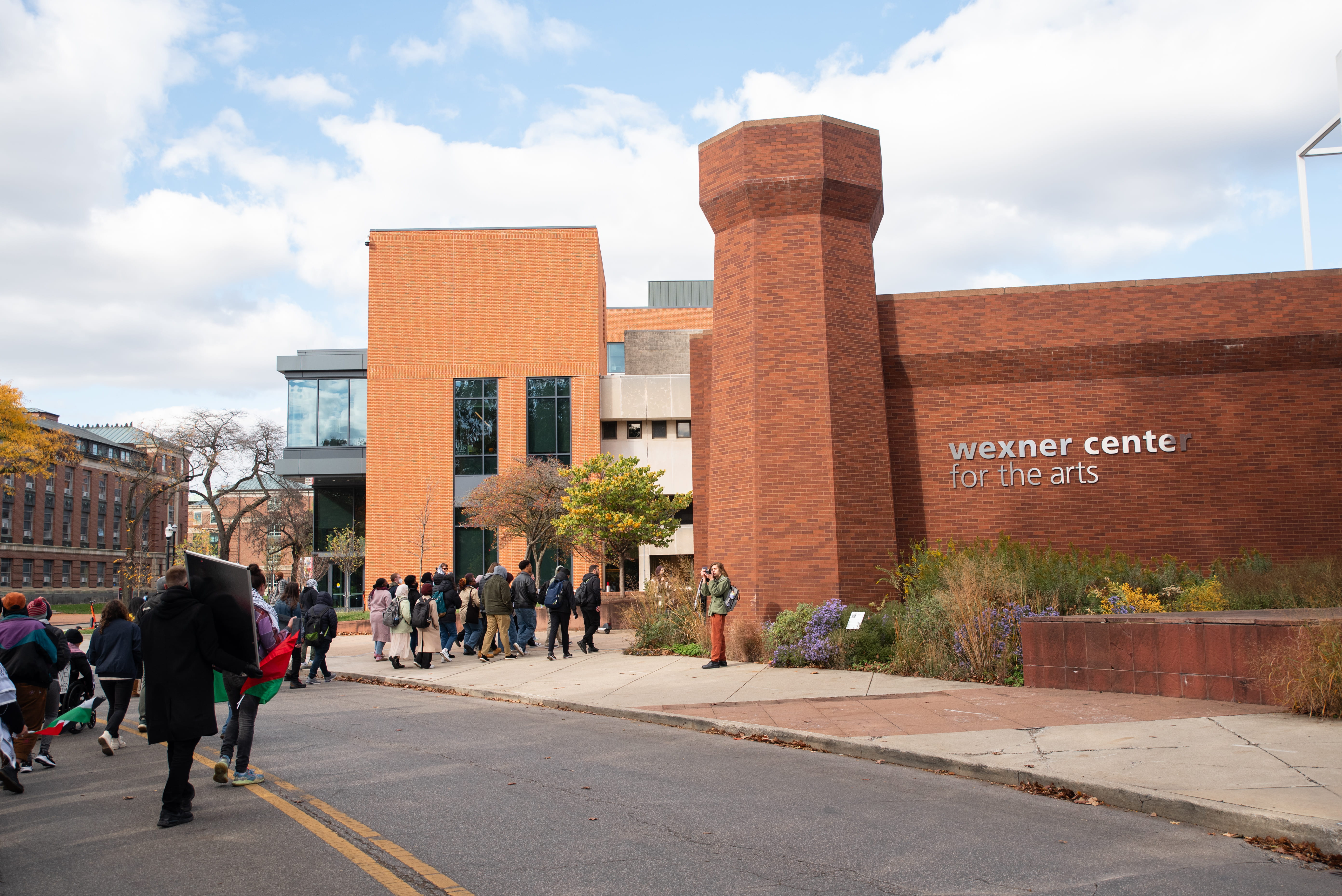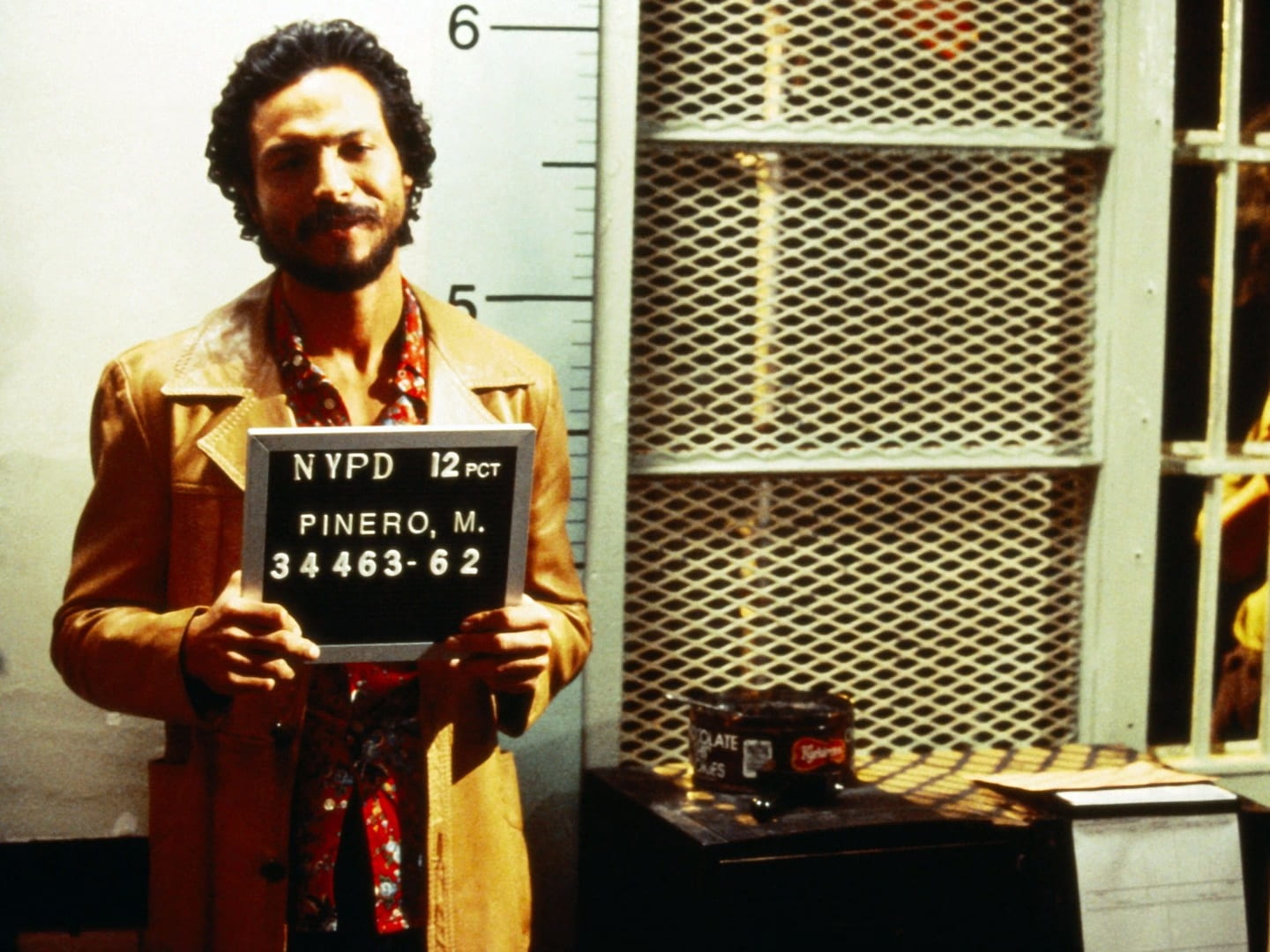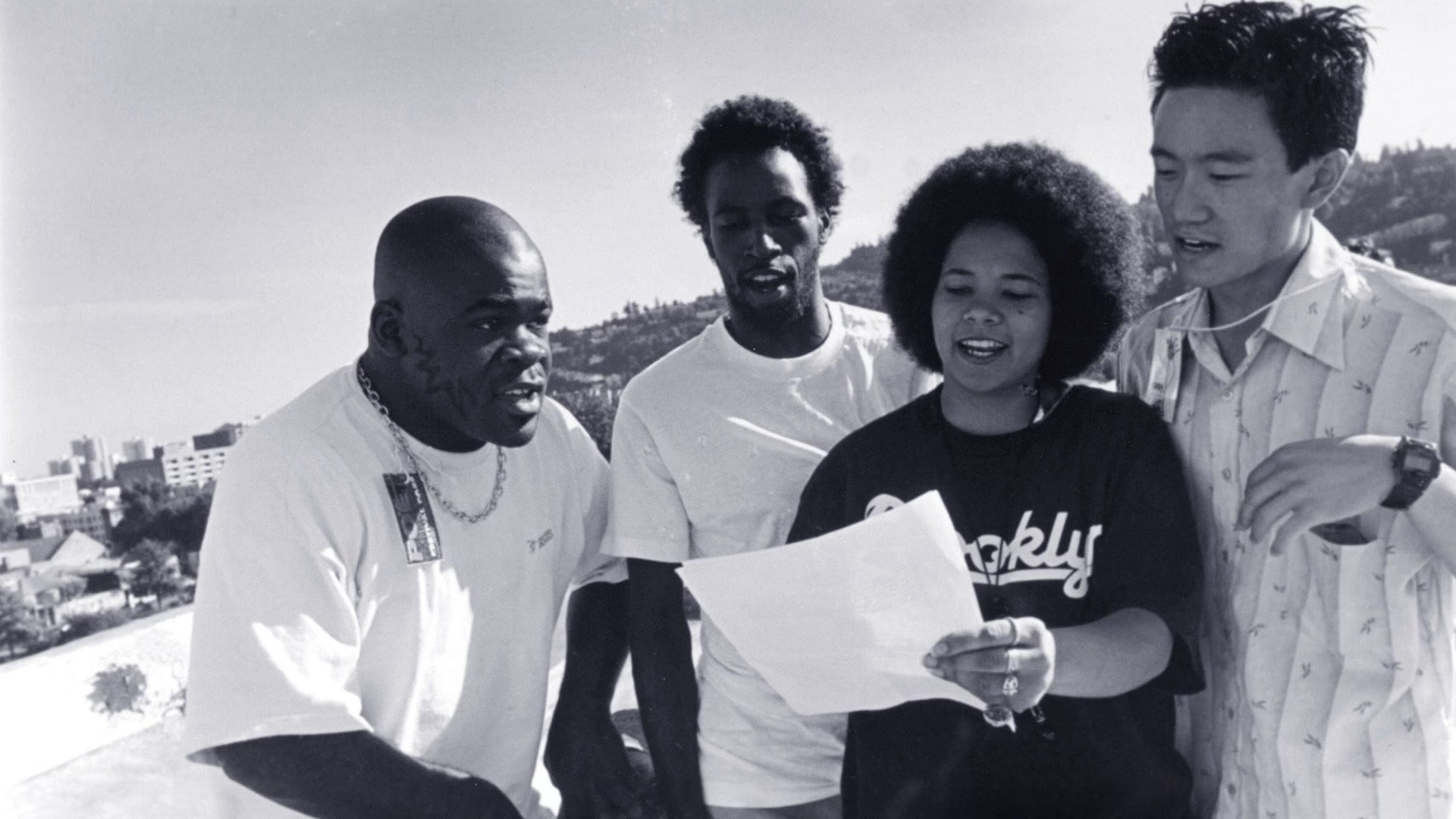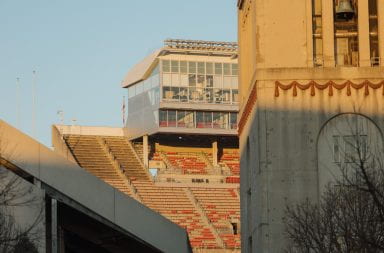
On Thursday, the Wexner Center for the Arts will open its three-day “Sonnets and Cinema” series, which will explore the intersection between film and poetry. Credit: Christian Harsa | Senior Lantern Reporter
Though art comes in many different forms, two particularly iconic mediums are film and poetry. Despite their popularity, however, the forms do not often intersect.
Starting Thursday at the Wexner Center for the Arts, they will.
The center’s “Sonnets and Cinema” series will screen three films over the course of the three-day event, all of which showcase the wide scope of poetry’s cultural influence. David Filipi, the center’s head of film and video, said although the three films are all distinct in plot, each holds poetry at its core. Event organizer and professional poet Scott Woods agreed and said the holistic series demonstrates why poetry is so gripping and accessible.
“As a form of just human expression, it’s almost unmatched,” Woods said. “The only thing you need to do poetry is language, whatever that means to you. And so, it allows more people into the art, but it also allows the art into more people.”

“Poetry” is the first film that will be shown as a part of “Sonnets and Cinema” on Thursday at 7 p.m. Credit: Courtesy of Wexner Center for the Arts
According to the center’s website, the series’ first film — which will be screened at Thursday’s event and is aptly titled “Poetry” — follows Yang Mi-ja, a grandmother who has been recently diagnosed with Alzheimer’s and relies on writing poetry to help her make sense of the world. As her family is swept up in the controversy of a brutal crime, Filipi said the story ultimately reflects how poetry can become a cathartic outlet.
“Poetry” is the first film that will be shown as a part of “Sonnets and Cinema” on Thursday at 7 p.m.
“The film ‘Poetry’ is more of a traditional narrative film and poetry becomes a huge part of the life of the main character in the film,” Filipi said.

“Piñero” is the second film that will be shown as a part of “Sonnets and Cinema” on Saturday at 7 p.m. Credit: Courtesy of Wexner Center for the Arts
The series’ second film, which is titled “Piñero” and will be screened at Saturday’s event, is a traditional biopic following the troubled life of poet, playwright and actor Miguel Piñero, Filipi said. Despite his artistic accomplishments, the center’s website states Piñero suffered from drug addiction and was placed in a maximum security prison after being convicted of second-degree armed robbery, where he wrote what became a Broadway play titled “Short Eyes.”
“He was someone who was able to create this great art, this wonderful poetry, but he had his personal demons that didn’t keep him from realizing a lot more work,” Filipi said.

“SlamNation” is the third and final film that will be shown as a part of “Sonnets and Cinema” on Feb. 22 at 7 p.m. Credit: Courtesy of Wexner Center for the Arts
The center’s website states that the final film being screened at the series’ third installment on Feb. 22, a documentary titled “SlamNation,” follows the four-member Nuyorican Poetry Slam team as it travels to Portland, Oregon, in 1996 to compete in the National Poetry Slam.
“It’s probably the one film that gives us the most direct experience of listening to a poet share their work with people,” Filipi said.
Beyond films, Fillipi said each of the series’ three nights will feature live poetry readings by Woods and an additional local poet, the identity of whom will vary each night. Woods said these prescreening readings will introduce the night’s featured film to prepare the audience for any relevant themes or ideas explored on screen.
“They’re not really there to introduce the film as such, they’re more to capture what the film leaves with the poet, which is the more important conversation with film to me,” Woods said. “So I asked the poets to compose — and I myself to compose — poetry that shows what it’s like to have art infect your life.”
Woods is also collaborating with the Wex Store to present a collection of poetry-related books that can allow attendees to connect more deeply with the series’ live readings and films, he said. The online syllabus, which features the title and author of each featured book, can be viewed via the center’s website. Though the quantity of selected texts is quite lengthy, Woods said each presents its own distinct merits.
“There’s a lot of just straight poems, but I also added a little slice of books for people who are maybe interested in the business of poetry or putting together poetry readings, things that are very instructive in that way,” Woods said.
Woods and Filipi said one of their primary goals for the event is to appeal to old and new fans of poetry alike.
“We have several national bestselling poets here in Columbus and so we have a pretty rich legacy with poetry here,” Woods said. “When people come up with new ideas for events, they’re usually very well attended.”
Woods said he wants people to walk away from the experience with the idea that poetry can change one’s life.
“Almost everything that I have in my life I owe to the written word,” Woods said. “Poetry is an extremely significant part of that and there are places that I’ve been and people that I’ve met that would just never have happened in any way, shape or form without poetry.”
The three-day series will take place over the course of Thursday, Saturday and Feb. 22 at the Wexner Center for the Arts’ Film/Video Theater, with each event kicking off at 7 p.m. Tickets are priced at $5 for students and can be purchased on the center’s website.


